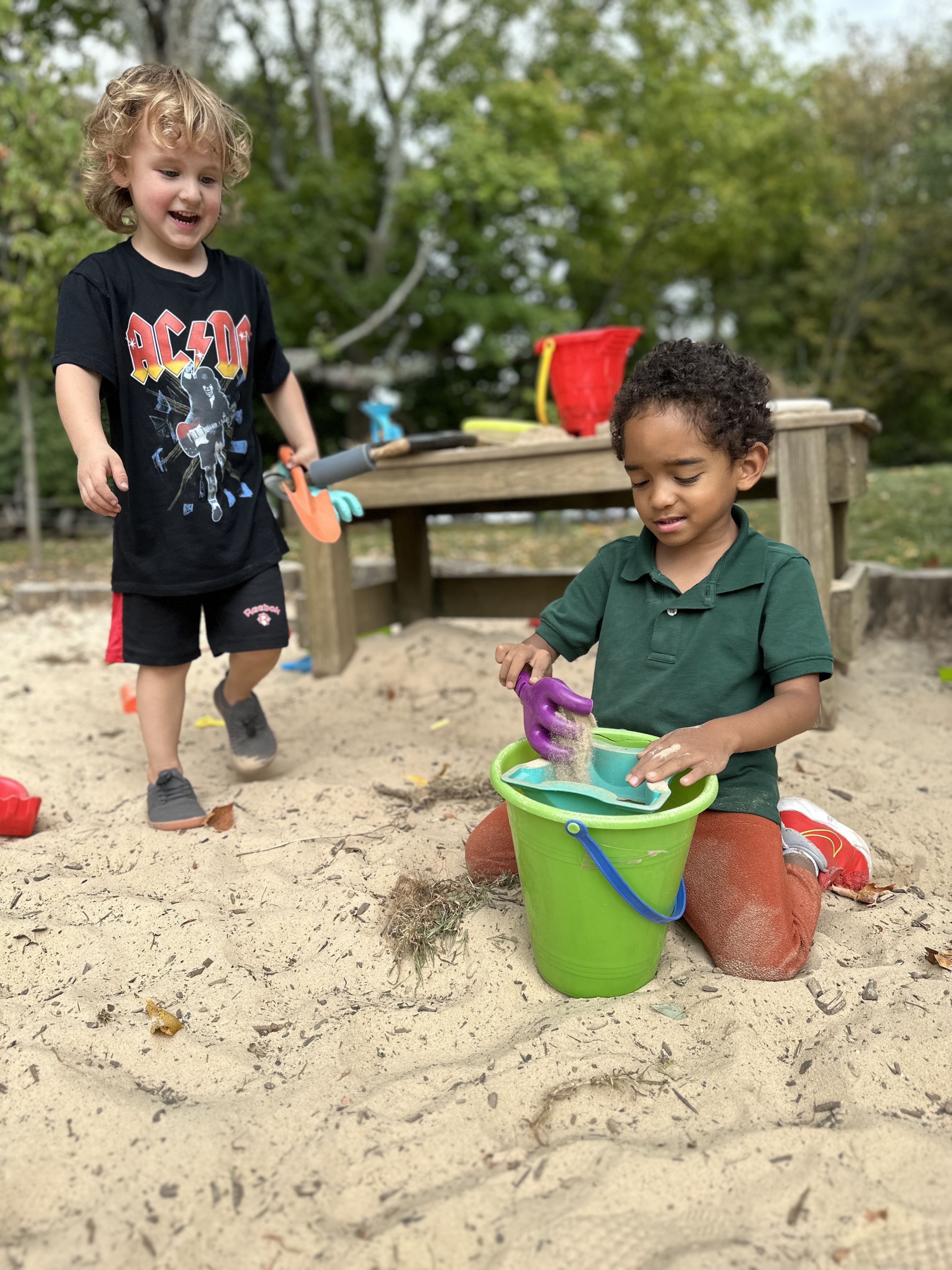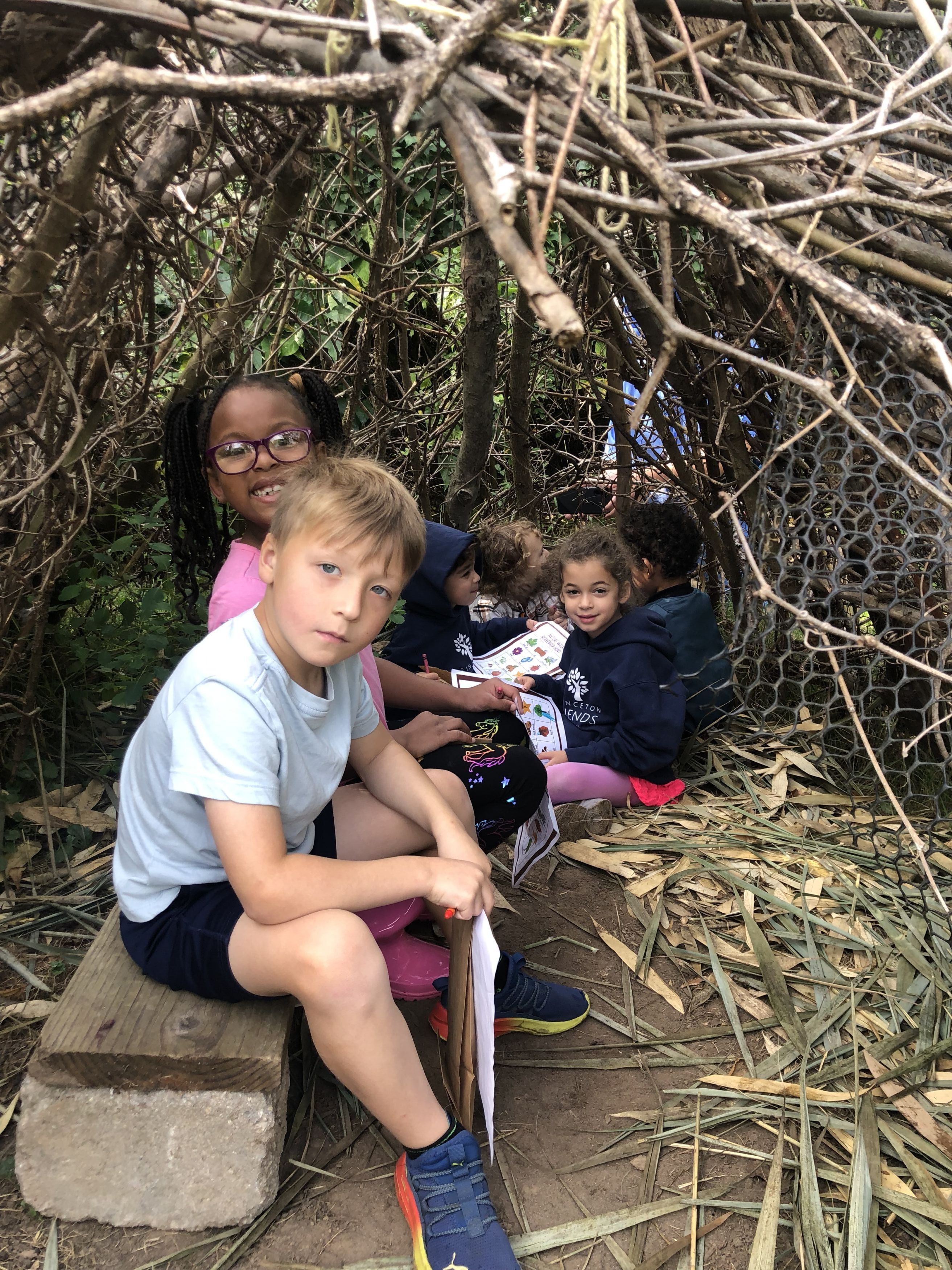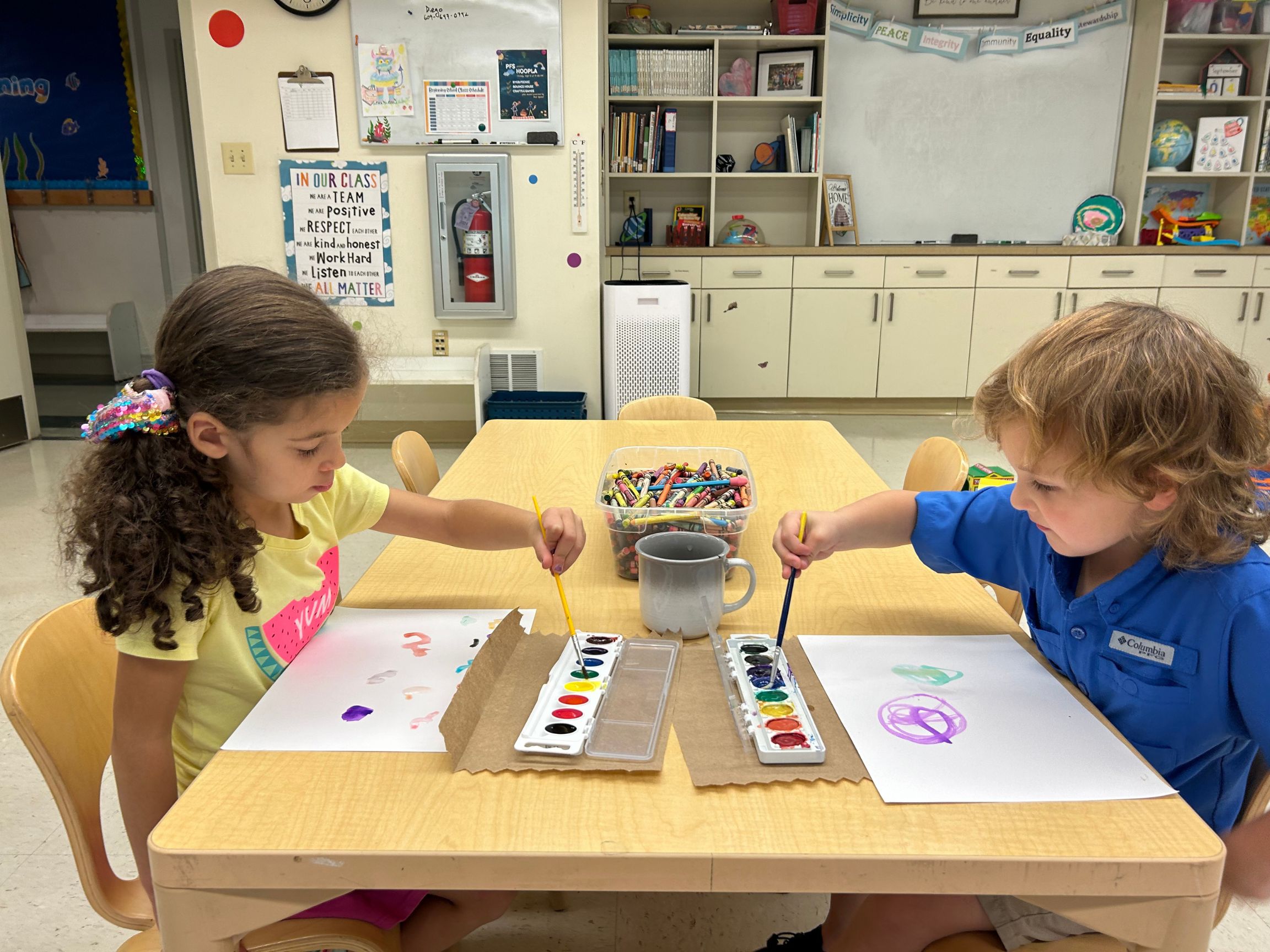Curriculum Elementary | Grades 1 & 2 Elementary | Grades 3-5 Middle School | Grades 6-8 Learning Support Program Beyond PFS

At Princeton Friends School, we have a special program called the Beginning School, designed specifically for children in preschool and Kindergarten. This program focuses on fostering friendship and encouraging exploration. It provides a gentle and nurturing environment for our youngest students to discover the joys of being part of a community and the excitement of learning through inquiry.
The Beginning School`s guiding principle of "Kindness is our daily gift" shapes each day, focusing on activities that stimulate both cognitive and emotional development. Children participate in interactive, play-centered tasks designed to nurture social skills, emotional intelligence, and academic abilities. The curriculum at Beginning School encompasses a variety of subjects, such as reading, writing, math, Mandarin Chinese, Spanish, music, art, mindfulness exercises, library time, Central Study, science, and physical education, all tailored to suit the age group with engaging, multisensory approaches.

A significant aspect of a PFS B-Schooler's day revolves around having ample time for unstructured exploration in a serene environment. The preschool and kindergarten students make the most of the PFS playgrounds, fields, and the encompassing woods. Consistent with the philosophy of a PFS education, we firmly believe in providing children with the necessary space and time to develop, while encouraging and assisting them in embracing new experiences when they feel prepared.

ESSENTIALS
- A warm and nurturing atmosphere, guided by Friends educational values.
- Academics in small groups tailored to individual learners.
- Time for outdoor play in all seasons.
- A schedule that leaves room for imagination.
- Classes in Mandarin Chinese and Spanish.
- A school community that cares for and respects its youngest learners.
A DAY IN THE LIFE
8:30 Morning Meeting
9:00 Academics & Free Play
9:30 Snack
10:05 Specials Class 1
10:45 Specials Class 2
11:30 Projects & Free Play
12:25 Lunch
1:00 Recess
2:00 Quiet Time
3:00 Afternoon Meeting


